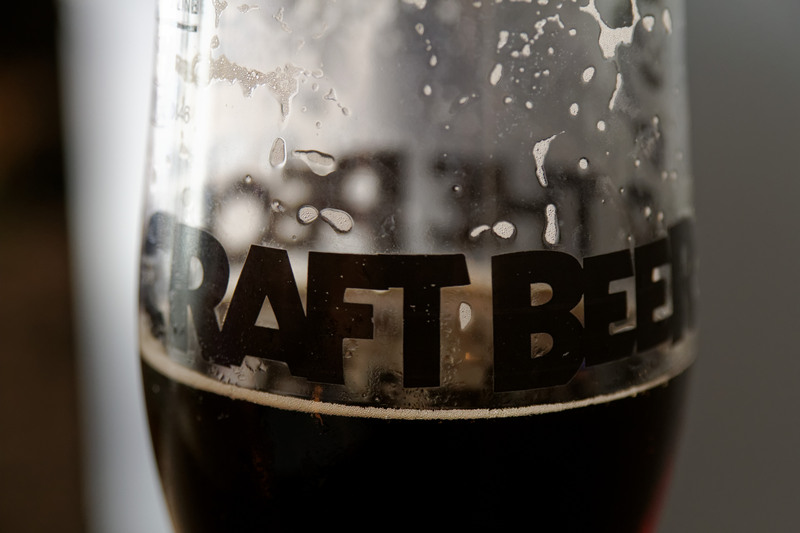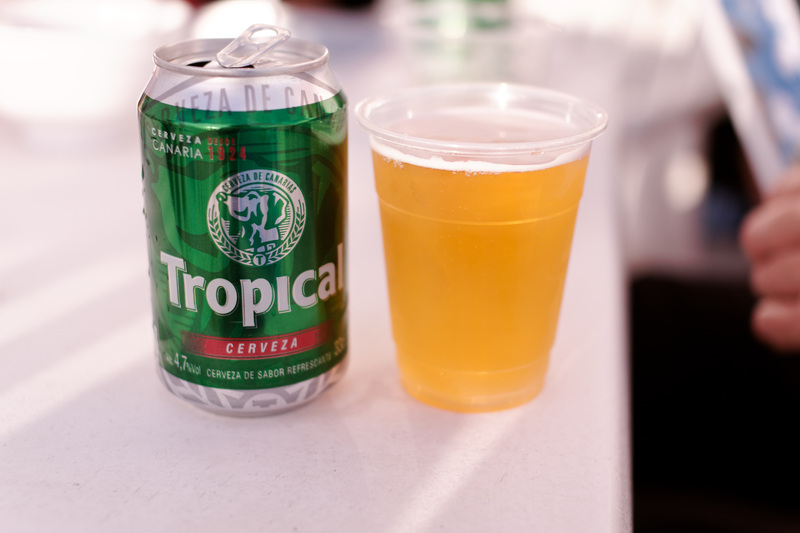What is craft beer?

Obviously craft beer |
I've made a point of never discussing definitions, because all definitions are tautologies. That is, a definition can never be wrong. If I say, "I define horse to be 'any creature which has three legs and one horn'", then nobody can tell me that's wrong. I'm simply notifying you that this is how I use the term. What you can say is that nobody else uses the term that way, and that you don't believe there are a whole lot of things which can be called horses under my definition.
The reason I've decided to finally say something on this issue is that I see there is a lot of disagreement over what craft beer actually is. Some of that disagreement made me realize that I don't actually know what I mean by it myself. The term used to have some fuzzy edges, which is fine, but it's becoming clear to me that actually the whole thing has gone fuzzy, which is not fine at all.
Consider for a moment the following:
- Brewdog makes craft beer. I think everyone will agree on this.
- The US Brewer's Association defines a craft brewer to be one that brews less than 705 million liters of beer per year. That limit has been increased because Samuel Adams went over it. Probably they'll go over it again. Are they still craft brewers? Will they still be?
- Is Fuller's a craft brewer? They make some beers the way they have for decades, and also some things that are fairly innovative, and some recreations from the past. Nearly all of it very good quality.
- Some small Franconian lager brewers make absolutely outstanding pale lagers, and have done so for about a century. Are they craft brewers?
- When Ramūnas Čižas brews beer with a stone grinder turned by hand, with no thermometers, using his grandfather's wooden equipment, is that craft beer? Max emphatically thinks so.
- Lithuanians themselves don't actually consider traditional Lithuanian beer to be craft beer.
- All definitions are tautologies.
I think the above is pretty confusing myself. In some ways, Čižas is more of a craft brewer than most. But the Lithuanian journalist is absolutely right that he's pretty far removed from the modern craft brewing movement. So, what gives?

Obviously not craft beer |
When the term "craft beer" came into existence it was as a term for the new US breweries that arose in opposition to the big lager giants. These breweries all had five things in common:
- They were small.
- They were not industrial, and much closer to the traditional craftsman approach. (In practice, this is going to be very closely correlated with point 1.)
- They were not making pale lager. Whereas all the other breweries were.
- They were part of the new "craft" wave.
- They were making beers that had lots of flavour.
Originally, "craft brewery" and "microbrewery" were considered to be the same thing. And reasonably so, because for a long time, all the brewers coming out of the craft beer revival were small, at least relatively. Wikipedia and the US Brewers Association still think craft brewery and small brewery is the same thing.
So for a long time, regardless of which of these five definitions you'd use in the US to separate breweries into two groups, you'd always get the same result. When the craft wave came to Norway the same thing held true for a long time. And not only did the definitions give the same results, but they really did reflect two clearly distinct groups of breweries. Even today these five definitions yield much the same results in both the US and Norway, although you have to be a bit more lenient in how you interpret a couple of them.
What this meant was that people would either learn a definition from others, or see how the term was used, and deduce a definition from that. Whichever way you did it, and whichever of the five definitions you'd choose, the outcome would always be the same. At least until some years ago. Today it's getting more difficult, partly because some of the craft breweries are definitely not microbreweries any more.
By contrast, in the UK, in Germany, and in Belgium these five tests have never given the same results. That is, in these countries the set of brewers inspired by the US craft movement has never been the same as the set of small brewers. And so on. As a result, the term "craft" has always been harder to apply there. My impression is that in the UK and Belgium people have been uneasy about the whole term, and some have even rejected it entirely. In Scandiavia and the US there's been far less of that, perhaps because the term worked better there.

But is it craft!?!? |
What you should take away from this is that "craft beer" can mean more than one thing. When people then munge all these meanings into one big ball of mud they very often go on to say really stupid things. So while all definitions are tautologies, the things we say with the terms we've defined are not. As long as you know how you are using the term you should be able to keep yourself on the straight and narrow.
You will note that this blog post has zero discussion of which definition is the correct one. Like I keep saying, all definitions are tautologies. Not only are all of the definitions correct, but it's not even possible for one of them to be wrong.
As for me, from now on, I'm going to use the term in the fourth sense. That is, for me a "craft" brewer is one that works in the tradition from the new US craft brewers. If you use the term differently that's fine by me, so long as you don't tie yourself in logical knots by using it three different ways simultaneously without realizing.
Similar posts
Equivalence classes
I've been doing some thinking about identity lately, but to explain myself I need to first get across the concept of an equivalence class
Read | 2006-08-17 21:23
Alstadberger
Driving hurriedly on from Storli Gard, we arrived at the island of Tautra outside Trondheim late at night
Read | 2014-09-03 19:59
Norwegian craft beer 2012
A year ago I posted an analysis of craft beer in Norway, where I concluded that craft beer had taken off in Norway, and that the growth would continue in 2012
Read | 2013-01-20 17:32
Comments
The Beer Nut - 2013-10-04 11:41:09
Diageo Ireland brews an American-inspired dry-hopped 100% Amarillo pale ale. Would you therefore regard Diageo Ireland as a craft brewery?
Lars Marius - 2013-10-04 12:17:13
@The Beer Nut: No. I would, however, consider that beer a craft beer. At least somewhat crafty. But a portfolio that consists of 2% semi-crafty beers doesn't make the brewer a craft brewer.